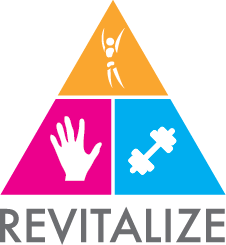When was the last time you were scared? You probably experienced hyperawareness, unsurity and anxiety.
The truth is that context gives this experience meaning. For example, a chainsaw wielding murderer… If you encountered this individual in an alleyway, you would likely run for your life.
However, if this individual was on a theatrical stage or your TV screen, there are safe barriers to the experience and you have likely seen a scary film or theatrical performance before. This makes the experience thrilling, predictable, but most importantly safe.
Our minds go through all experiences in a similar way. Our minds ask questions:
How does this feel? What does this mean? Have I been here before?
If you would like to learn about how this affects you on a daily basis and how to turn bad experiences into good ones, then have a look at the video I have recorded on social media and our blog
How our minds react to new experiences
New experiences could be advantageous or disadvantageous and this is important. For survival purposes, we want to go towards advantageous experiences and avoid disadvantageous experiences. However, sometimes our minds can put the same experience in the wrong category.
How does this seem
Imagine that murderer with a chainsaw. Is he bigger and stronger than you? Faster than you? These are only observations atm and don’t have any meaning behind them. But this could also be you seeing a stranger whisper to their friend. It could be you bending forward and hearing your back go “pop”!
What do I know about this situation? Have I been here before?
This is where we try and apply strategy. Imagine if someone had never seen a TV before. They might be quite convinced that the chainsaw wielding murderer is going to crawl through the screen. They’ll likely run. Similarly, if someone has a background of bullying, they may assume the two people whispering are saying something nasty about them. However if you view yourself as quite attractive, and have experienced a lot of advancements in the past, you may assume they’re saying quite pleasant things about you.
What does this mean?
This is where our minds have to decide, is this good or bad? The individual who bent over and heard his back pop may have never experienced this before. But due to their understanding of the body or seeing their dad incapacitated with back pain for so many years, they may view it as being a really bad thing. Their body then creates a pain response as a defence mechanism. Another person may love going to see their osteopath and perceive the click as a release in tension. That person feels better as a result.
How we use this to improve your health
A lot of the above may seem completely out of your control. However the good thing is that every step that I have mentioned is an opportunity to change.
How can the threat seem different? How can we create new memories that are beneficial to the patient? Ie associating new social situations or new movements with good things rather than bad things? How can we help this patient to come up with new meaning for their experience?
For example for physical health, pain after exercise is still pain but many would describe it as a nice pain. This pain after exercise is actually a great way to raise someone’s capacity and pain threshold.
Or for mental health, how about creating a new experience of meeting new people to overwrite the nasty old ones that have kept the patient lonely for so long?
Understanding this process is quite straight forward but implementing it is more difficult.
Want to work with someone to overcome your pain points? Book in for a free consultation with one of our team. Whether it is overcoming your fear of exercise, movement, new social situations etc. Don’t worry. We have your back in every way possible.
Book in for a free consultation

